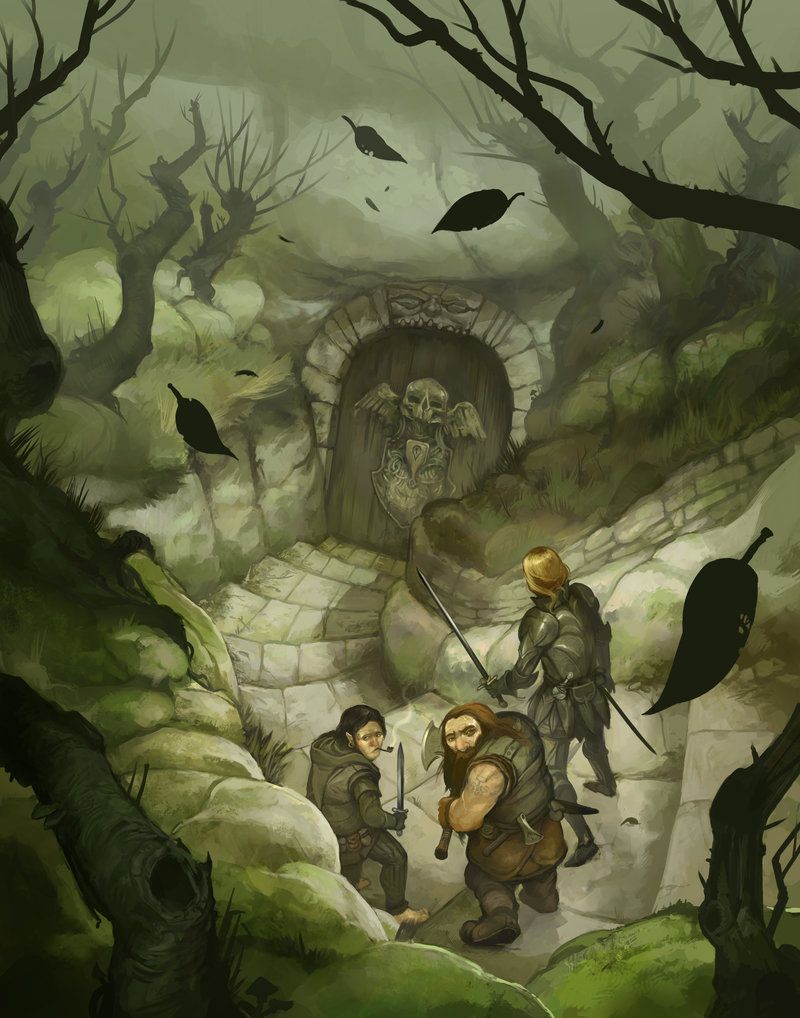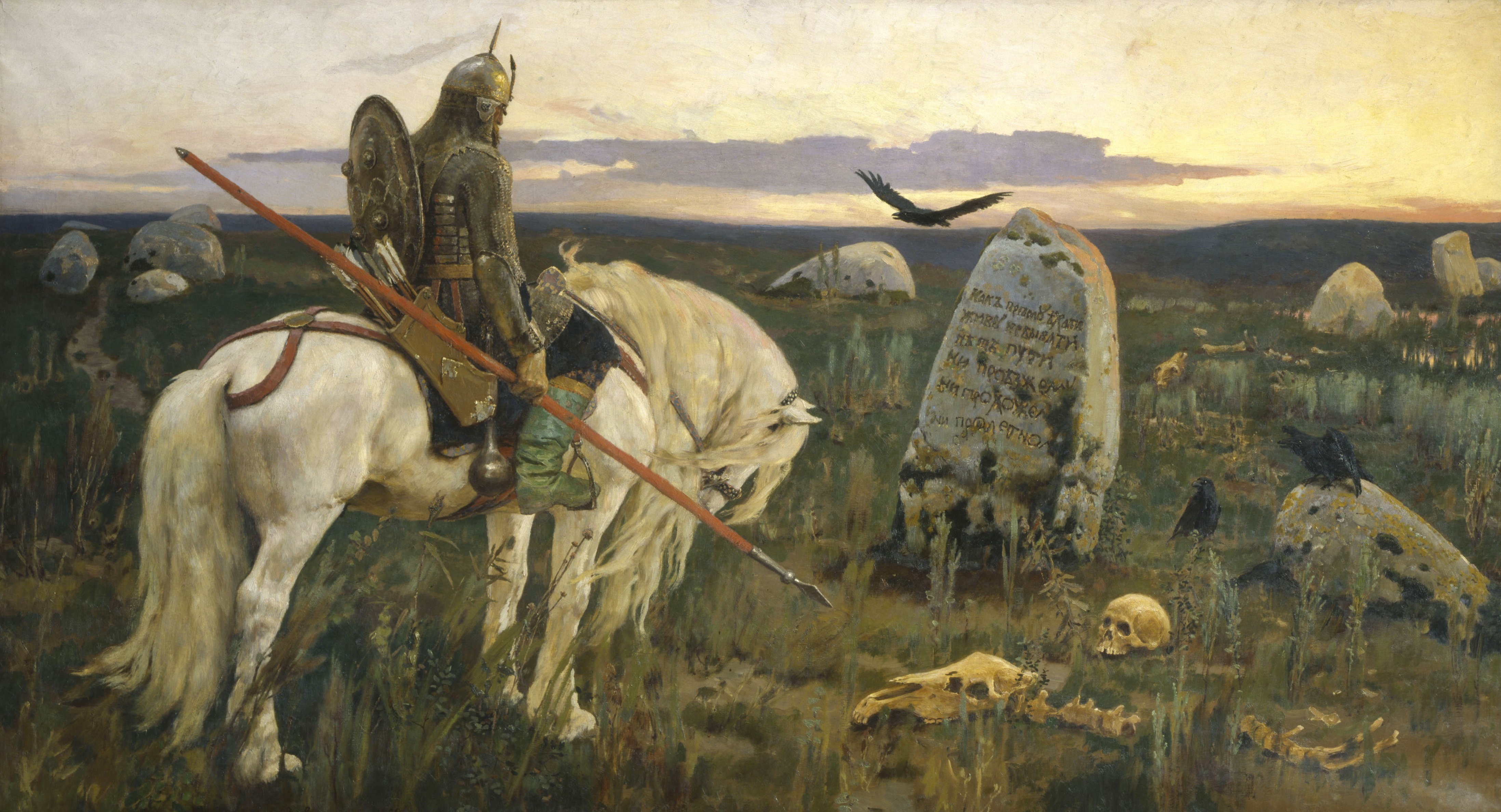Quest (spell)
Quest is a command spell that places a magical compulsion upon the recipients, requiring them to fulfil a specific and often challenging task set by the caster. The task generally involves significant effort and may include extensive travel, overcoming numerous obstacles, or confronting dangers. Typical objectives of a quest include retrieving an object of great value or power, discovering or reaching a particular place, or bringing about the defeat or destruction of an individual or group. The caster employs this spell when they wish to accomplish a goal without directly involving themselves in the associated effort or risk.
| Range | 60 ft. |
| Duration | until fulfilled; 1-4 days per caster's level |
| Area of Effect | 1 creature per level |
| Casting Time | 30 rounds |
| Saving Throw | negates; see below |
| Level | bard (5th); cleric (5th) |
The spell qualifies as a charm. While the spell is active, the recipient feels an overriding sense of obligation to complete the assigned task and will act in accordance with this compulsion. During this time, they are at ease with the requirements of the spell and are unlikely to question or resist the commands given to them. However, once the spell's effects end, the recipient will become aware that they were enchanted and may develop feelings of anger, betrayal, or resentment towards the caster, depending on the nature of the quest and its impact on them.
Legitimacy
The purpose of the quest must be clearly stated when the spell is cast, and it must be authentic and valid based on the caster's perspective. The caster cannot fabricate a task solely to mislead the recipients; they must genuinely believe the quest assigns a real purpose or objective. This legitimacy must also conform to the caster's own understanding, even if the task itself is based on incomplete information, speculation or misjudgment. The spell must not deceive or mislead the recipients into pursuing a false or meaningless objective with no actual basis.
It's not required that the recipients be actually capable of completing the task as the spell does not account for their individual skills, knowledge or preparedness. The focus is solely on the existence of a real and defined objective that the caster believes to be achievable whether or not the recipients possess the means to succeed. Sufficient details or context during the casting of the spell must provide the recipients with a place to start, indicating that it is plausible to obtain or locate the thing quested after.
Saving Throw
The caster designates the individuals affected by the spell. These individuals, as a group, receive a single saving throw against magic. The individual within the group with the best possible saving throw makes the roll on behalf of the entire group. If the roll fails, all designated individuals are bound together to undertake the quest. If the roll succeeds, all individuals are released from the spell and act normally. The spell does not affect any individual more than once within a single month.
Once the spell fails, the affected creatures ready themselves within the hour and proceed immediately. They are unable to stop themselves from moving toward the object or purpose of the quest for 10 hours each day. Outside of this compelled period, they find time to camp, purchase gear, and acquire food in markets they encounter along their journey.
The Ongoing Quest
If any member of the group is wounded and has less than 50% of their maximum hit points, the group may rest for up to three days. After this period, they must continue their journey for at least three days before being allowed to rest again. If no member of the group meets the requisite condition of reduced hit points, they may not rest at all. They are not permitted to rest or pause for any other reason. This period of rest does not count toward the spell’s overall duration.
Once the spell’s influence has ended, it is common for those affected to continue the quest of their own volition, albeit at their own pace. If the quest is completed, the party feels a strong compulsion to inform the caster of the outcome, either by sending a messenger or delivering the news personally. They will not feel at ease until they are certain the message has reached the caster. Typically, the spell provides confirmation to the questers through a vision granted to one of their members, ensuring they know the message was successfully delivered.
Bringing the Spell into Play
Whatever the purpose, the spell imposes upon the freedom of those affected and will often be regarded as an abuse of power. However, a positive aspect of the spell is its potential to inspire courage and compel action that might otherwise be avoided. This could lead to an adventure that, in hindsight, might be seen as rewarding or even transformative. If those commanded emerge from the experience wealthier, more capable or with a sense of accomplishment, it is possible they may forgive the caster for the imposition. For this reason, when the spell is used by or against players, consideration should be given to these dynamics to avoid creating resentment or a desire for retribution.
Understanding the abilities and temperament of those commanded greatly enhances the likelihood of success. For this reason, it is prudent to avoid targeting complete strangers and instead choose individuals with a proven capacity for the task. Similarly, a non-player character casting the spell against the party would likely select members with the skills and attributes needed to achieve the quest’s goal.
Though the spell allows commands as trivial as fetching an ale from the tavern bar, such use would almost certainly breed resentment. The caster should expect that frivolous or demeaning commands would sour any goodwill and provoke lasting hostility.

